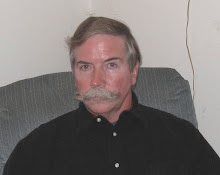Ron Paul's support for "legalizing" drugs would legalize them in the same way that murder is now legal. Why should drugs be any different from murder or speeding? If a group of farmers decides to start growing opium poppies and open up an opium den associated with the farm, how is this a federal matter?
The late Congressman Larry McDonald said that he had several questions he asked himself before voting on - or maybe even reading - a bill:
(1) Is it constitutional?
(2) Can we afford it?
(3) Is it a good idea?
If a bill fails the first test you needn't proceed any further. It doesn't matter how great an idea it is if it isn't constitutional.
Government officials routinely perjure themselves by voting for, signing or upholding unconstitutional bills. Violating an oath is still perjury even if you think you have a good reason. St. Thomas Aquinas says that even if you swear to commit an evil act - e.g. murder someone - you cannot morally perform the act, but you are still a perjurer. Perjury has become so commonplace that nobody thinks anything about it.
A politician who honors his oath of office is so rare that Ron Paul is unique. There may be others, but I don't know who they are. There are quite a few who follow the constitution when it doesn't matter, but when the fat's to the fire, they will vote however they are supposed to. Thirty or so years ago, I was at a rally, and G.V. "Sonny" Montgomery, a congressman from Mississippi was speaking about something long forgotten. One thing he said that hasn't been forgotten was that politicians with ratings in the 70s or 80s by the Americans For Constitutional Action are "conservative when it doesn't matter."
Most people who constantly squawk about obeying the constitution want to make exceptions in their own cases or for other "good reasons." One constantly recurring and popular violation is the awarding of gold medals to various people in a thinly veiled feel-good vote-buying scheme.
Ron Paul is sometimes portrayed as an ogre for opposing these bills. In 1997 there was a bill to award a medal to Mother Teresa, which he opposed.
From the Congressional Record, U.S. House of Representatives, May 20, 1997.
RON PAUL: Mr. Speaker, I rise today in opposition to H. R. 1650. At the same time, I rise in total support of, and with complete respect for, the work of Mother Teresa, the Missionaries of Charity organization, and each of Mother Teresa’s Nobel Peace Prize-winning humanitarian efforts. I oppose the Gold Medal for Mother Teresa Act because appropriating $30,000 of taxpayer money is neither constitutional nor, in the spirit of Mother Teresa who dedicated her entire life to voluntary, charitable work, particularly humanitarian.
Because of my continuing and uncompromising opposition to appropriations not authorized within the enumerated powers of the Constitution, several of my colleagues found it amusing to question me personally as to whether, on this issue, I would maintain my resolve and commitment of the Constitution — a Constitution which, only months ago, each Member of Congress swore to uphold. In each of these instances, I offered to do a little more than uphold my constitutional oath.
In fact, as a means of demonstrating my personal regard and enthusiasm for the work of Mother Teresa, I invited each of my colleagues to match my private, personal contribution of $100 which, if accepted by the 435 Members of the House of Representatives, would more than satisfy the $30,000 cost necessary to mint and award a gold medal to the well-deserving Mother Teresa. To me, it seemed a particularly good opportunity to demonstrate one's genuine convictions by spending one's own money rather than that of the taxpayers who remain free to contribute, at their own discretion, to the work of Mother Teresa, and have consistently done so. For the record, not a single Representative who solicited my support for spending taxpayer's money, was willing to contribute their own money to demonstrate the courage of their so-called convictions and generosity.
It is, of course, very easy to be generous with other people’s money.In a similar vein, there is a famous incident recounted here between Davy Crockett and a constituent named Horatio Bunce, in which Bunce reprimands Crockett for appropriating tax money in a charitable cause. Crockett did have the integrity to admit that Bunce was right and pledged to not do it again.
It is easy to see why politicians have no regard for their oath of office when nothing happens to them for violating it and one who holds it sacred is called a "kook" for honoring it. Anybody who claims they want a constitutionalist for president has no options other than Ron Paul. He is the only one who is bound by the dictates of the constitution and has a 24 year record to substantiate what he claims.
The record of all others who have a voting record contradicts any claim they make of honoring their oath to uphold the constitution. We have a system of men, not laws. No system of law is possible when it can be disregarded by those sworn to uphold it.
